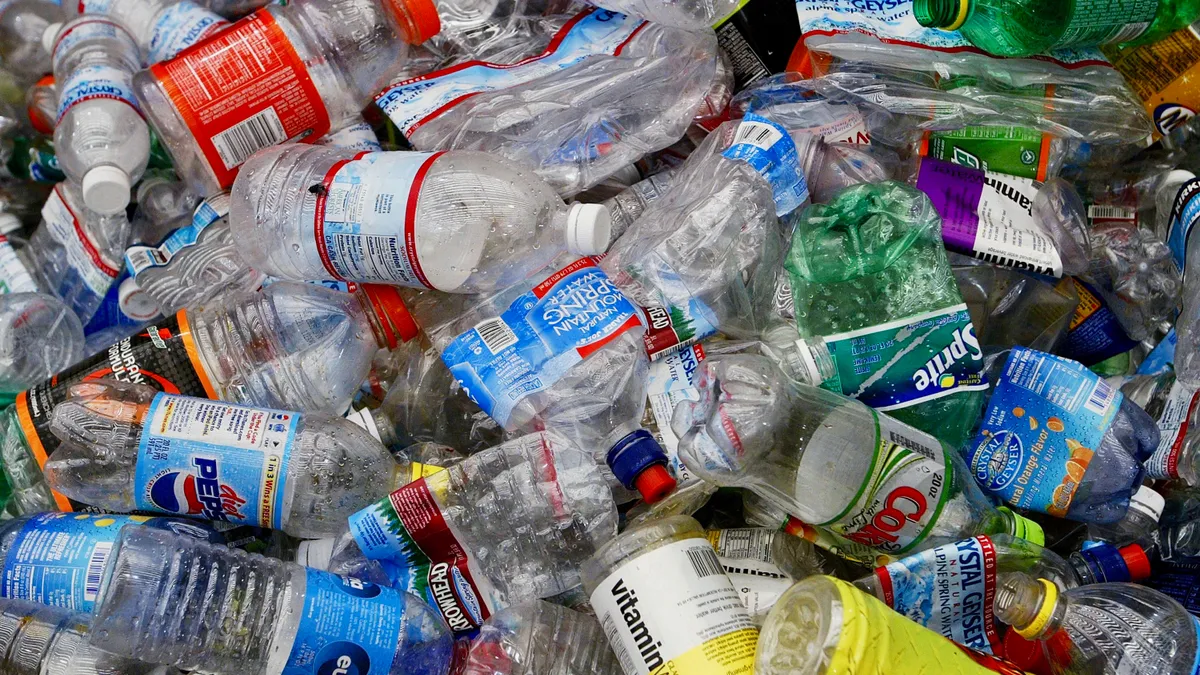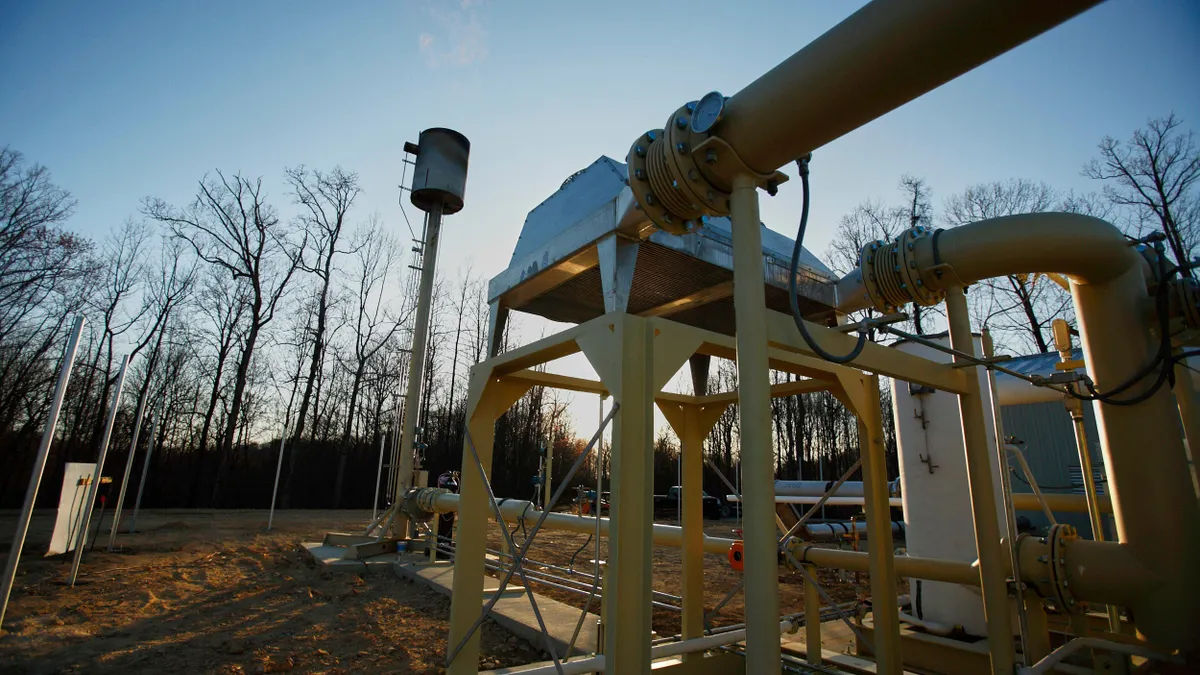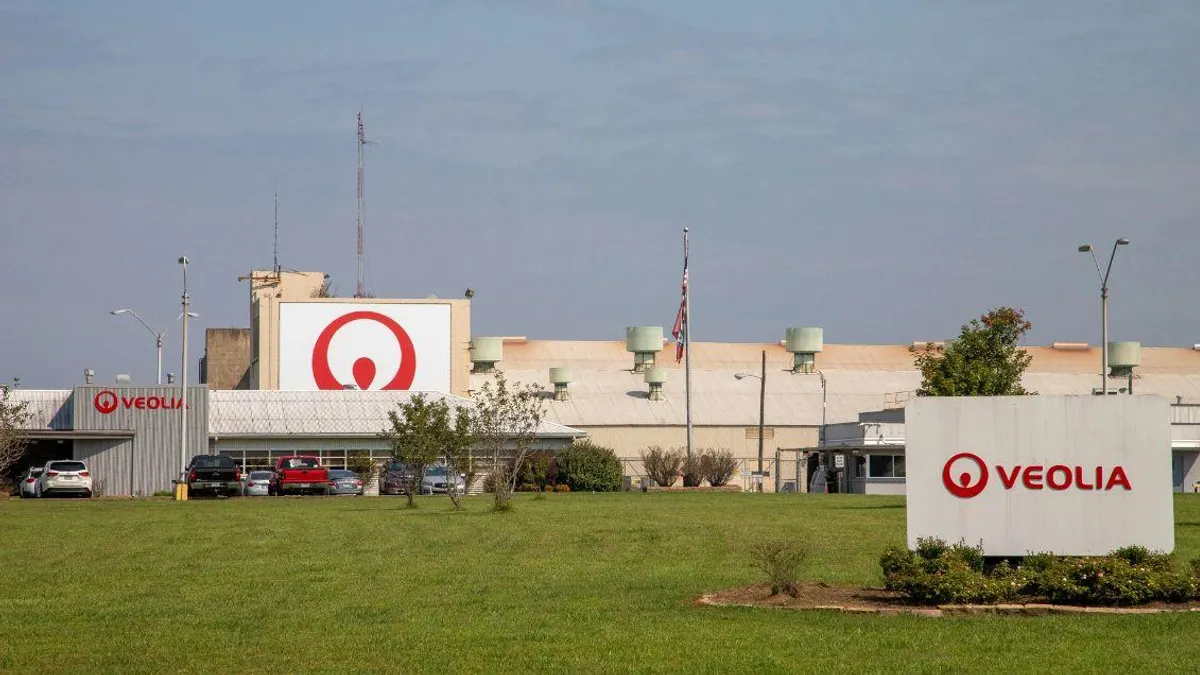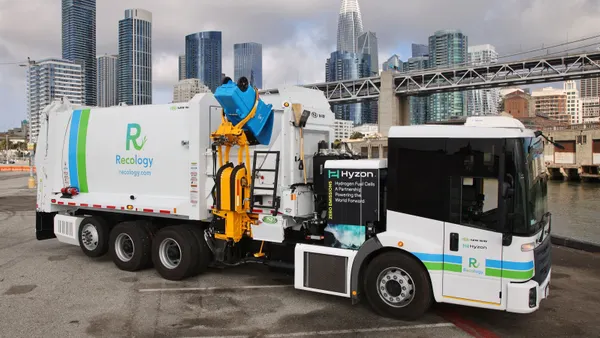North American plastic resin markets continue to struggle with low supply caused by extreme weather events in 2021 and ongoing port congestion issues, which is helping keep prices high for most resins and creating opportunities for some recycled resins in the near term, IHS Markit analysts said at the Plastics Recycling Conference on Tuesday.
Crude oil price volatility, due in part to the war in Ukraine, likely will add complexity to future price forecasts and may drive up some resin prices, creating room for recycled resins to be more competitive on the market, said Joel Morales, executive director of polyolefins Americas for IHS Markit, during a talk on resin pricing trends. “For recyclers, that is good [market] news going forward,” he said.
Yet both virgin and recycled resin markets are still struggling with many of the same supply issues they faced in 2021, making it tough to catch up on needed production. The North American polyethylene terephthalate (PET) market has been tight since the first quarter of 2020, when the region first started feeling the effects of the pandemic and demand for PET products increased due to changes in consumer buying behavior, said Marcelo Wasem, associate director of research and analysis at IHS Markit.
In 2021, hurricanes Ida and Nicholas and a major winter storm in Texas caused production and price interruptions still being felt today, Morales explained. “We're just now getting caught up on supply, and now we have this Ukraine conflict,” he said.
Global trade costs and logistics issues are other lingering hindrances on the market, Wasem said. Ongoing congestion at the ports of Los Angeles and Long Beach, which first came to a head in September 2021, has continued to slow PET imports. It’s also tough to find available vessels to ship the material, he said, and some customers have had to budget for a major spike in container prices — sometimes paying up to $15,000 a container compared with the average of $2,000. Wasem estimates traders will have to endure these conditions through at least the next quarter.
Meanwhile, North American polyethylene (PE) exports are struggling, primarily due to congestion at the Houston ports. Normal virgin PE exports are about 2 billion pounds a month from that location, Morales said, but exporters are only able to send out about 1.5 billion pounds a month currently. Texas is the source of about 85% of U.S. PE production.
Polypropylene (PP) imports from China and other parts of Asia will continue, but Morales expects that North Americans will start sourcing more of these resins locally to avoid the hassle from ongoing international supply-chain issues.
“Even though the arbitrage between North American prices and Asian prices is 50 cents a pound today, that's not enough to make it worth some people's while to deal with the supply-chain disruptions and unreliable deliveries, which they’ve been dealing with for the last six months,” he said.
In 2021, amid those constraints, demand for virgin PP and PE grew about 9%, the highest demand growth since 2010. “What we've seen in the last couple of years has been nothing short of amazing for polymer consumption,” said Morales.
More PP capacity is expected to come online in both China and North America, which will help reduce supply constraints over the next few years, he said. A group of resin manufacturers last year also announced a recycling fund for PP and PE to spur more recycled resin production in North America.
Meanwhile, global PET markets are oversupplied, with more capacity than demand in places such as China, Wasem said. That will continue to put pressure on operating rates and margins, even as North America struggles with its own supply issues. Globally, 77% of PET demand goes into beverage containers. Demand typically rises in the summer months as people buy more beverages, then falls in the winter. However, North American demand has stayed consistent throughout the pandemic, “and this demand will remain for the next few months,” he said.
Planned turnarounds at virgin PET manufacturers in South Carolina and Alabama will also keep North American markets tight, according to IHS Markit’s February Global PET Stream report. However, plastics recycler and manufacturer Evergreen announced that it plans to increase recycled PET production by about 48% in June, when it completes upgrades to its Clyde, Ohio facility. That could boost its rPET production from 147 million pounds to 217 million pounds a year, according to the report.
Analysts said recycled content commitments from big brand owners will likely make an impact on most recycled plastic markets in 2022, but not equally across all resins.
The recycled high density polyethylene (HDPE) market is where Morales sees the most influence of big brands. Prices for recycled HDPE have accelerated much faster than prices for its virgin counterparts since the pandemic began, in part because U.S. HDPE has a lower production capacity than some other resins, he said. Though IHS Markit does not forecast postconsumer recycled HDPE markets, Morales said he does not believe HDPE natural will come back to virgin pricing levels anytime soon. “Right now, it is a premium product in the marketplace."
Prices for both virgin and recycled mixed color postconsumer PP have also gone up recently. Although Morales doesn’t expect the prices to move “one for one,” he expects virgin and recycled resin prices to continue to trend together as more brand owners make recycled resins a priority.
Brand commitments are not making much of an impact on North American recycled PET markets, at least in the short term, Wasem said. Global brands may be voicing more demand for recycled PET, “but it won’t impact virgin PET prices in 2022,” he said.
The topic of recycled resin price and availability came up numerous times throughout the conference, including from brand owners mentioning the need to source more recycled plastic to meet their sustainability goals and processors seeking funding or resources to better collect and process the material.
Peter Keller, vice president of recycling and sustainability for Republic Services, said during a presentation that the high demand and high premiums on some recycled resins represents a business opportunity for his company. Republic recently announced it will open a facility in the Las Vegas area in 2023 that will process PET and olefins to produce recycled PET flake and plastic bales of other types.
"There's some confidence that supply is going to continue to be short of demand, and simple economics would suggest there's going to be value there," said Keller.

















